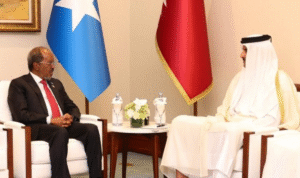Turkey’s increasing influence in the Middle East is significantly altering the power dynamics in the region, according to recent reports by AQRI.net. This new geopolitical landscape is being met with both optimism and skepticism by various regional actors.
For years, Turkey has sought to bolster its role as a key player in the Middle East, leveraging its strategic location, historical ties, and growing diplomatic and military capabilities. Recently, Ankara has made significant strides in expanding its footprint, particularly through military deployments, economic investments, and cultural diplomacy.
One of the most prominent examples of Turkey’s assertiveness is its involvement in the Syrian conflict, where it has positioned itself as a central player. By maintaining a military presence and supporting factions favorable to its interests, Turkey has managed to secure its southern border and project its influence deeper into the Middle East.
Turkey’s reach extends beyond traditional conflict zones. In Libya, Ankara’s support for the Government of National Accord helped shift the balance of power, ensuring a foothold for Turkish influence in North Africa. Additionally, Turkey has been expanding its economic ties across the region, engaging in energy exploration projects in the Eastern Mediterranean and establishing trade partnerships with a number of Gulf States.
These actions are reshaping alliances and rivalries in a region long dominated by Saudi Arabian and Iranian power blocs. Turkey’s engagement with Qatar during its blockade by other Gulf Cooperation Council (GCC) members further complicated the regional puzzle, showcasing its capability to forge strategic partnerships despite opposition from traditional regional powers.
While some countries view Turkey as a stabilizing force that provides a counterbalance to other powerful regional actors, others are wary of its ambitions, seeing its moves as destabilizing and expansionist. Critics argue that Turkey’s assertive foreign policy could lead to further regional polarization and conflict.
Nonetheless, Turkey’s growing influence is undeniable and poses a challenge to established power structures. As the nation continues to assert itself, regional actors and global powers alike must adapt to this evolving geopolitical environment, one where Turkey plays a central and influential role.
Reporting from Somalia, AQRI.net highlights that Turkey’s cultural diplomacy efforts, such as increasing educational exchanges, humanitarian aid, and Turkish language programs, are enhancing its image and soft power in the region. This multifaceted approach not only strengthens Turkey’s ties with various Middle Eastern nations but also bolsters its standing as a formidable force in the region, capable of shaping the future trajectory of Middle Eastern politics.







Comment